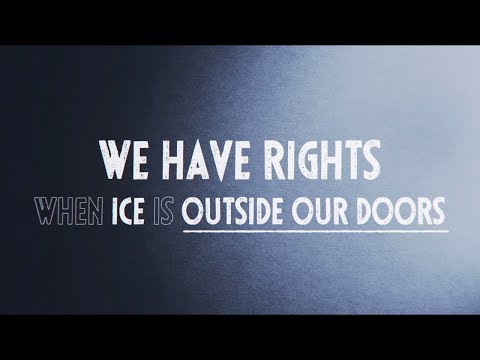
In Delaware and other parts of the United States, you have rights and legal protections even if you are not a U.S. citizen. Regardless of your immigration status or documentation, you’re entitled to fair and equal treatment under the law.
U.S. Immigration and Customs Enforcement (ICE) agents and other law enforcement officers may not always respect or honor your rights. Knowing what rights, you have is one of the best ways to protect yourself and your family. Here’s what you should do if you encounter ICE agents in your community.
In this document, we include a number of phrases that you should say during any interaction with law enforcement. Saying these exact phrases are very important and could be important in immigration court if the agents didn’t listen/respect those phrases.
Looking for more? Visit our national website.













